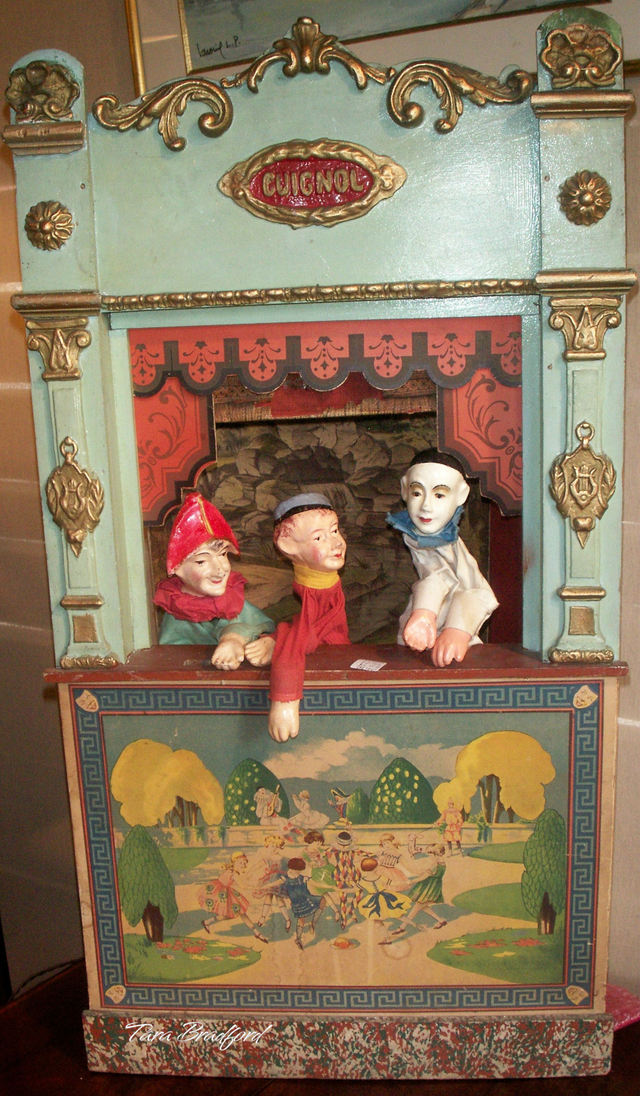
I’ll take two: A 1920s Guignol puppet theatre which folds up like a suitcase (Tara Bradford photo).
Jetlag. Is it harmless? You get tired and moody. You forget things. You insult store clerks while trying to be friendly. It also makes you buy weird things.
Ah, devil jetlag. I have had some lately.
I get it going East, mainly. Three hours difference in time zones is enough. To Europe. Within North America. It doesn’t matter. But you can’t let it screw up your work–so you don’t. If you can, you become a tourist on the first day there.
You visit churches and see obscure religious art. You meet women named Zoe and Tasha. You visit shops–even though you don’t like to shop–and you buy odd stuff. You call people back in the U.S. on your cell phone you don’t even like. You insult store clerks while trying to be friendly (i.e., asking Paris bakers if the bread is really fresh–which I have done). Or you are irritable.
To some, you just seem “out of it”. On the phone, your wife thinks you are acting strangely. So does your girlfriend.
“Jetlag”, also called desynchronosis, is a disturbance of one’s circadian rhythms. It makes you hear, think, say, do and even see odd things. You get tired. And moody. You forget things.
Jetlag first attracted the attention of science in the “behavior” of plants. In 1729, French astronomer Jean Jacques Ortous de Mairan studied heliotrope plants to determine if the opening and closing of the leaves was simply a response to the sun:
To do so, he confined a plant to the dark. The daily rhythmic motions of the heliotrope’s leaves persisted even in the absence of sunlight.
